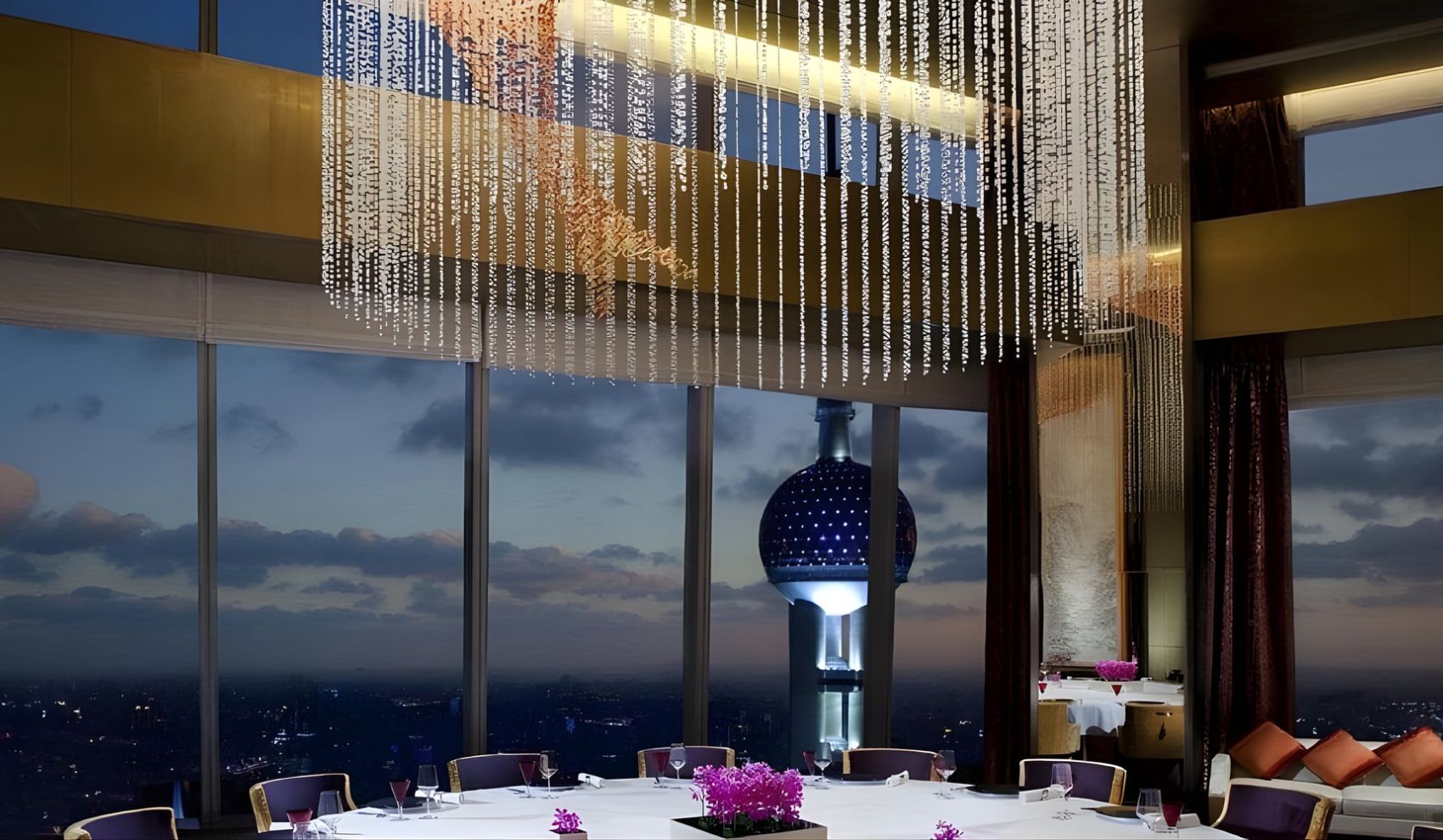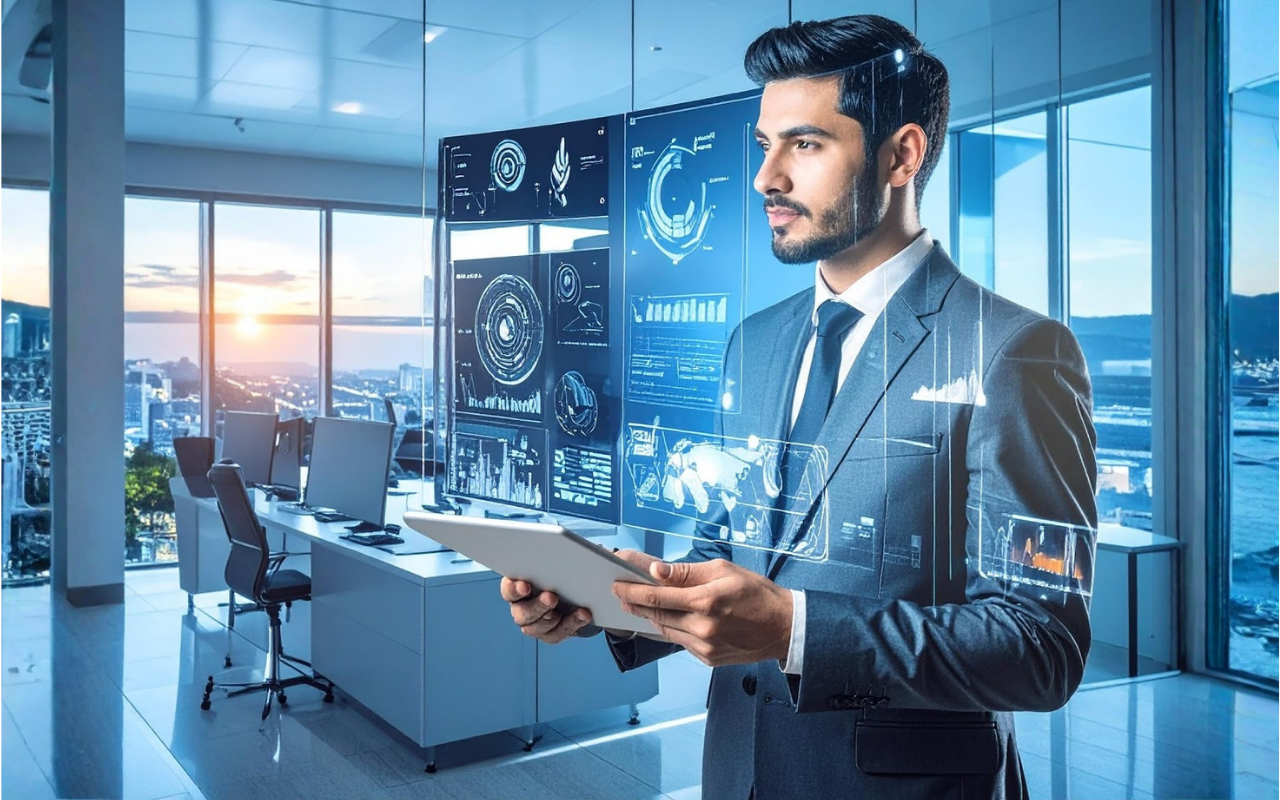
In today’s luxury travel landscape, travelers want more than just a beautiful property and consistent service. They’re looking for experiences that feel uniquely tailored to them — a seamless blend of the comfort of a trusted brand and the discovery of local culture. This shift is redefining how luxury hotel brands like EDITION, W, NoMad, and The Ritz-Carlton deliver value.
Empowering Personalization Through Experiences
Personalization extends beyond amenities and services—it’s woven into the entire guest journey. Every detail, from room design to dining, can be an opportunity to make guests feel valued and understood.
EDITION Hotels, for instance, often collaborate with local artists and brands to create signature experiences. At "The Tokyo EDITION" a "Sustainable and Timeless Christmas Tree", designed by Kengo Kuma and crafted by Karimoku, will be transformed into elegant tables, preserving the legacy of the original tree. Punch Room, EDITION’s global cocktail bar concept, blends 19th-century London club traditions with Japanese culture. As Japan's first authentic punch bar, it offers innovative drinks made with sustainable, local ingredients in an intimate, sophisticated setting.

The Ritz-Carlton Bali’s partnership with Missoni for a Resort Club collection illustrates how collaborations can elevate the guest experience while staying true to the brand’s identity. These partnerships allow properties to feel both globally consistent and locally relevant, creating meaningful connections with guests.

Anticipating Guest Needs
With the global luxury market forecast to hit $1.6 trillion in 2024, the hospitality industry faces increasing pressure to align with changing expectations. Guests today seek more than physical luxury; they want to feel understood. Younger travelers are drawn to experiences like yoga retreats, spa treatments, and innovative sleep technologies, while older generations favor familiar comforts delivered with precision.
The secret to meeting these expectations lies in understanding individual preferences and anticipating needs. Chinese tourists, for example, are shifting their focus from shopping to immersive cultural and experiential activities. Hotels that adapt to these trends can deliver tailored journeys that leave a lasting impression.
Moving Beyond Localization
While localization remains important, personalization takes it further by creating a sense of connection. At The Ritz-Carlton Shanghai Pudong, this philosophy is evident. Guests can enjoy Michelin-starred Chinese cuisine at Jin Xuan or indulge in authentic Italian dishes at Scena di Angelo, on 52nd floor, providing both a taste of Shanghai’s vibrant culture, mediterranean flavors, and view of the Bund. These thoughtful options cater to a spectrum of guests, from first-time international visitors to seasoned business travelers.

Personalization as a Growth Strategy
Luxury hospitality is no longer just about offering opulence—it’s about creating a deep emotional connection. Personalization enables brands to transform generic stays into unforgettable journeys. Whether through tailored wellness options, culturally immersive dining experiences, or thoughtful gestures, every interaction can reinforce the brand’s value in the guest’s mind.
By focusing on personalization, luxury hotel brands can build stronger relationships, inspire repeat visits, and turn guests into advocates. The future of luxury travel lies in meeting the traveler where they are—not just physically, but emotionally. It’s about crafting experiences that feel truly individual, leaving guests with the sense that their journey was designed just for them.
Featured posts

In every era of hospitality, a single technology quietly transforms how hotels think, work, and connect with guests. The first Property Management Systems digitized reservations. Channel managers expanded reach. Mobile apps gave guests control at their fingertips. Now, a new frontier is emerging, driven by hotel business intelligence tools that go beyond automation. Artificial Intelligence is no longer just an assistant to humans. It is becoming a co-operator that thinks, adapts, and acts alongside them. We are entering the age of cognitive hospitality.
From Reactive Operations to Predictive Intelligence
Today, most hotels still operate reactively, responding to guest requests, occupancy changes, or service gaps. But the next evolution will be guided by hotel business intelligence software that predicts needs before they even appear. Imagine your property’s digital systems like PMS, housekeeping, maintenance, CRM, all feeding data into one unified intelligence. It can recognize early check-in patterns, forecast service bottlenecks, and allocate staff automatically based on what’s happening in real time. In this near future, a housekeeping system doesn’t just schedule cleaning rounds; it senses when rooms are ready through motion, temperature, and guest device signals. Maintenance no longer waits for a service ticket. It detects unusual vibration patterns in the HVAC system and creates a task before anyone calls. The hotel of tomorrow will not just run faster. It will run smarter, continuously learning from its own rhythm and data patterns.

Where Conversations Become Commerce
The guest journey is turning into a continuous conversation. Instead of scrolling through websites or apps, travelers will simply tell their digital assistants what they want, and those assistants will handle everything.
“Find me a resort in Kyoto with private onsen villas, a mountain view, and electric vehicle pickup.”
“Book me a three-night stay in Paris near the Louvre with a large workspace and late checkout.”
In seconds, the system compares live inventories, reviews, and prices, completes the booking, processes payment, and even pre-selects preferred amenities. Guests may never touch an OTA or open a browser again. The entire transaction could happen through a single exchange between two digital assistants, the traveler’s and your hotel’s AI-powered system. This is already becoming real. Stripe’s Agentic Commerce allows AI agents to handle payments securely, while conversational systems like PolyAI are learning to speak the language of hospitality naturally and intelligently. For hotels, the next booking engine might not be a webpage. It could be a smart hotel system that knows when a traveler is ready to book.
The Rebirth of the Concierge
As hotel business intelligence tools and automation handle routine work, the human role will shift from transactional to emotional. Front-desk teams will no longer be valued for speed, but for empathy, and for noticing small cues, handling recovery moments, and adding human warmth where technology cannot. The AI concierge will take care of confirmations, reminders, and upgrades. The human concierge will become the storyteller, curating experiences that make every stay memorable. We will no longer train staff to follow steps. We will train them to design moments.
Data: The New Language of Hospitality
AI thrives on clarity, not just volume. In tomorrow’s hospitality landscape, your property’s visibility will depend on how well your data can be read, understood, and trusted by hotel business intelligence tools. Every room description, amenity tag, and review becomes a digital signal. Hotels that organize their data properly like linking services, locations, sustainability, and experience details, will appear more naturally in AI-powered searches and travel planning tools. Your ranking will not only live on a website anymore. It will be decided in a conversation between two intelligent systems that understand which hotel truly fits a traveler’s intent.

Hospitality Intelligence: Beyond Automation
Real transformation begins when technology becomes a collaborator rather than just a helper. This is where hospitality data intelligence takes center stage. AI and analytics will blend data, timing, and emotion into a learning system that helps your hotel:
- Predict occupancy and staffing needs before demand rises
- Detect guest emotions through voice and behavior in real time
- Adjust pricing dynamically based on market context and guest sentiment
- Recommend sustainability actions that improve efficiency and reduce waste
When every department, from housekeeping to CRM, becomes part of one connected network, the hotel evolves into a living system powered by hotel business intelligence software. It starts to feel the rhythm of its guests and respond with precision.
Redefining What It Means to Be Human in Hospitality
This future doesn’t remove the human touch in hospitality; it enhances it. Teams will have more time for empathy, creativity, and genuine connection, the parts of service that can’t be coded. Leaders such as General Managers and Directors of Operations will no longer just manage performance metrics. They will design intelligence itself, deciding how systems think and what values they optimize for. The real question for tomorrow’s hoteliers isn’t “How do we use AI?” but “How do we teach it to understand what makes hospitality human?” Imagine a stay where your hotel already knows you but still manages to surprise you. Your favorite cookie is waiting in the room. The temperature, pillow firmness, and music are just the way you like them.
The age of cognitive hospitality and hotel business intelligence is here. The question isn’t when it arrives. It’s whether your hotel is ready to think.

The hospitality industry stands at a critical juncture in telecommunications infrastructure evolution. As hotels navigate the complex landscape of digital transformation, legacy voice systems present increasingly significant operational, security, and financial challenges. This strategic guide examines the current state of hotel voice infrastructure, analyzes the risks associated with traditional systems, and presents a strategic framework for modernization that balances operational continuity with technological advancement.
The hospitality sector's unique operational requirements - 24/7 availability, guest experience prioritization, and regulatory compliance - demand a carefully orchestrated approach to voice system modernization. Rather than pursuing disruptive full-scale cloud migration, forward-thinking hotels are adopting hybrid middleware solutions that preserve existing investments while establishing pathways to future technologies.
The Current State of Hotel Voice Infrastructure

Legacy System Challenges
The hospitality industry's reliance on traditional Private Automatic Branch Exchange (PABX) systems has created a complex web of operational dependencies that extend far beyond basic voice communication. These systems, often integrated with Property Management Systems (PMS), in-room devices, and emergency notification systems, form the backbone of hotel operations.
However, this integration comes at a significant cost. Legacy voice infrastructure typically operates on Windows-based gateway systems that require constant maintenance, present security vulnerabilities, and consume substantial IT resources. The complexity of these systems often necessitates dedicated server rooms, specialized technical staff, and ongoing licensing fees that compound operational expenses.
Security Landscape Analysis

The cybersecurity landscape for hospitality has evolved dramatically, with voice systems emerging as a primary attack vector. The hospitality industry faces unprecedented cyber threats, with global cybercrime damage costs expected to grow by 15% per year over the next two years, reaching $10.5 trillion USD annually by 2025. According to IBM's Cost of a Data Breach Report 2023, the average cost of a data breach in hospitality reached $3.36 million, with legacy voice systems representing a particularly vulnerable entry point for malicious actors.
The scale of the threat is staggering. Cyberattacks occur at an alarming rate of over 2,200 times daily, with someone falling victim every 39 seconds. The hospitality sector has experienced some of the most devastating attacks in recent years, as demonstrated by the September 2023 incidents affecting major Las Vegas casino operators.
Traditional telephony infrastructure presents multiple security vulnerabilities

Persistent Storage Risks: Legacy systems maintain extensive databases of call records, configuration data, and system logs on local storage devices. This persistent data creates attractive targets for ransomware attacks and data exfiltration attempts.
Network Exposure: Conventional voice gateways often require multiple open ports for various services, creating potential entry points for unauthorized access. Remote Desktop Protocol (RDP) access, commonly used for system administration, has become a favored attack vector for cybercriminals. The Caesars Entertainment breach in September 2023 demonstrated how simple social engineering tactics can compromise entire hotel networks when attackers impersonated legitimate employees to request password resets through voice communication channels.
Configuration Drift: Over time, manual system modifications and patches create configuration inconsistencies that can inadvertently introduce security gaps or system instabilities. An estimated 83% of businesses reported experiencing at least one insider attack in 2024, highlighting the risks of systems requiring frequent manual intervention.
The Business Case for Modernization

Financial Impact Assessment
The total cost of ownership for legacy voice systems extends beyond initial hardware and software investments. Hotels face ongoing expenses related to:
- Maintenance and Support: Aging Windows-based systems require regular patching, updates, and technical support, often necessitating specialized vendors or internal IT expertise.
- Infrastructure Overhead: Server rooms, cooling systems, and backup power solutions add significant operational costs.
- Downtime Costs: System failures can disrupt guest services, potentially impacting revenue and brand reputation.
Operational Efficiency Considerations
Modern hotel operations demand seamless integration between voice services and other property systems. Traditional architectures often create silos that hinder operational efficiency and guest experience optimization. Call billing systems may operate independently from property management platforms, creating manual reconciliation processes and potential revenue leakage.
Furthermore, multi-property hotel chains face additional complexity when managing disparate voice systems across locations. Standardization efforts become costly and time-consuming when each property operates unique infrastructure configurations.
Strategic Modernization Framework

The Middleware Approach
Rather than pursuing immediate full-scale cloud migration, the middleware approach offers a pragmatic path forward that addresses immediate security and operational concerns while preserving existing infrastructure investments. This strategy recognizes that hotel voice systems must maintain absolute reliability while gradually evolving toward cloud-native architectures.
The middleware model introduces a secure bridge between existing on-premises systems and cloud-based management platforms. This approach provides immediate security benefits while establishing the foundation for future technological advancement.
Architecture Principles
Security-First Design: Modern middleware solutions should implement zero-trust security principles, eliminate persistent storage vulnerabilities, and minimize attack surfaces. RAM-only operation ensures that temporary data cannot be exploited by malicious actors, while strict access controls prevent unauthorized system entry.
Operational Continuity: Modernization efforts must prioritize uninterrupted service delivery. Middleware solutions should integrate seamlessly with existing PABX systems, PMS platforms, and in- room devices without requiring substantial operational changes or staff retraining.
Scalability and Standardization: Multi-property operations benefit from standardized infrastructure that can be centrally managed while accommodating location-specific requirements. Cloud-controlled management enables consistent policy enforcement and simplified troubleshooting across property portfolios.
Technical Implementation Strategy

Hardware Architecture
The shift from Windows-based gateways to ARM-based middleware devices represents a fundamental change in hotel voice infrastructure design. ARM processors offer several advantages for hospitality applications:
Power Efficiency: ARM devices consume significantly less power than traditional x86 systems, reducing operational costs and environmental impact.
Form Factor: Compact ARM devices eliminate the need for dedicated server rooms and associated cooling infrastructure.
Reliability: Simplified hardware designs with fewer moving parts reduce failure rates and maintenance requirements.
Security Implementation
Zero-Trust Network Access: Modern middleware implementations should establish secure communication channels using industry-standard SSL encryption over port 443, eliminating the need for multiple open ports or complex firewall configurations.
Ephemeral Storage: RAM-only operation ensures that all system data is automatically purged during power cycles, preventing data persistence that could be exploited by attackers.
Access Control: Key-based SSH authentication and optional secure file sharing capabilities provide necessary administrative access while maintaining security boundaries.
Integration Capabilities
Effective middleware solutions must support comprehensive integration with existing hotel systems:
- Voice Services: Call Detail Record (CDR) processing, voicemail management, and AI-powered operator services.
- Property Management: Minibar posting, room status updates, and guest service integrations.
- Emergency Systems: Wake-up call management and emergency broadcast capabilities.
- Network Services: IPTV integration and IP telephony preparation.
Implementation Considerations
Deployment Strategy
Successful voice infrastructure modernization requires careful planning and phased implementation.
The deployment process should minimize service disruption while ensuring thorough testing and validation at each stage.
Pre-Deployment Assessment: Comprehensive analysis of existing infrastructure, integration requirements, and operational dependencies provides the foundation for successful implementation.
Staged Rollout: Gradual deployment across property locations allows for real-world testing and refinement before full-scale implementation.
Staff Training: While middleware solutions reduce operational complexity, staff must understand new management interfaces and troubleshooting procedures.
Change Management
Technology modernization efforts often face resistance from operational staff familiar with existing systems. Successful implementations require clear communication about benefits, comprehensive training programs, and ongoing support during the transition period.
Vendor Selection Criteria
When evaluating middleware solutions, hotels should consider:
Security Certifications: Vendors should demonstrate compliance with relevant cybersecurity standards and provide documentation of security testing procedures.
Integration Experience: Proven experience with hotel-specific systems and protocols ensures smooth implementation and ongoing support.
Scalability: Solutions should accommodate growth and changing requirements without requiring substantial architectural changes.
Support Structure: 24/7 technical support and rapid response capabilities are essential for hospitality operations.
Future Considerations

IP Telephony Migration
While middleware solutions address immediate modernization needs, hotels should develop long-term strategies for transitioning to IP-based telephony systems. The middleware approach provides time and flexibility to evaluate IP telephony options while maintaining operational stability.
Cloud Integration Evolution
As cloud-based communication services continue to mature, hotels can gradually migrate additional voice services to cloud platforms while maintaining local optimization for high-bandwidth applications.
Artificial Intelligence Integration
Modern voice platforms increasingly incorporate AI-powered features such as automated attendants, natural language processing, and predictive analytics. Middleware architectures should support these advanced capabilities while maintaining security and reliability standards.
Conclusion

Hotel voice infrastructure modernization represents both a critical operational necessity and a strategic opportunity. The challenges posed by legacy systems—security vulnerabilities, maintenance overhead, and operational inefficiencies—demand immediate attention. However, the complexity of hotel operations requires modernization approaches that balance innovation with operational continuity.
The middleware strategy offers a pragmatic path forward, addressing immediate security and operational concerns while establishing the foundation for future technological advancement. By implementing secure, cloud-ready bridge solutions, hotels can eliminate the risks associated with legacy systems while preserving existing infrastructure investments and maintaining service reliability.
Success in voice infrastructure modernization requires careful planning, appropriate vendor selection, and commitment to ongoing evolution. Hotels that embrace strategic modernization approaches will achieve improved security posture, operational efficiency, and competitive positioning in an increasingly digital hospitality landscape.
The hospitality industry's digital transformation continues to accelerate, and voice infrastructure modernization represents a critical component of this evolution. Organizations that act decisively to address legacy system challenges while preparing for future technological opportunities will be best positioned to deliver exceptional guest experiences while maintaining operational excellence.
This strategic guide provides a framework for hotel voice infrastructure modernization based on current industry trends and security requirements. For specific implementation guidance and technical specifications, consult with qualified telecommunications professionals and cybersecurity experts.

In today’s hospitality landscape, speed is more than a luxury - it’s the baseline.
According to a recent global guest feedback report, 54% of hotel complaints relate to delays in service and 61% of guests now expect staff to respond within 5 minutes or less.
But what happens behind the scenes tells a different story.
A guest requests extra towels. Ten minutes pass. They call again. Front desk checks with housekeeping. Housekeeping never received the request. The towels? Still sitting in a storage closet. The issue isn’t that your team isn’t trying. It’s that they’re over-relying on fragmented channels—walkie-talkies, phone calls, WhatsApp groups, even sticky notes.
The result? Slow service, duplicated work, and rising frustration on both sides of the desk.
This is where FCS1 makes the difference.
FCS1 is a hospitality operations solution built to match the speed of today’s guest expectations.
It ensures that every request - be it room service, engineering, cleaning, or luggage delivery - is immediately routed to the right person, tracked in real time, and closed with full accountability.
Hotels using FCS1 report:
- Up to 40% faster task response times
- 25–30% increase in housekeeping task efficiency
- Fewer missed or repeated service calls
- Tangible improvement in guest satisfaction and online ratings
Managers get full visibility into who’s doing what, and when. Frontline staff focus on delivering, not relaying. Guests notice - not because you tell them, but because everything just works.
The best-run hotels don’t react faster. They’re simply better equipped to anticipate, assign and act - without chaos.
Your guests won’t wait.
Now your team doesn’t have to either.
Let’s talk about making that happen for you. Get in touch today.









.svg)




.png)











